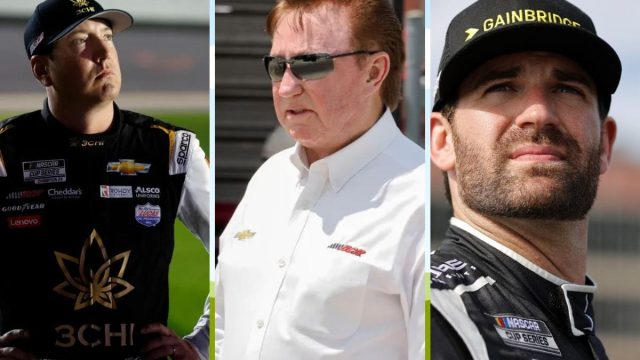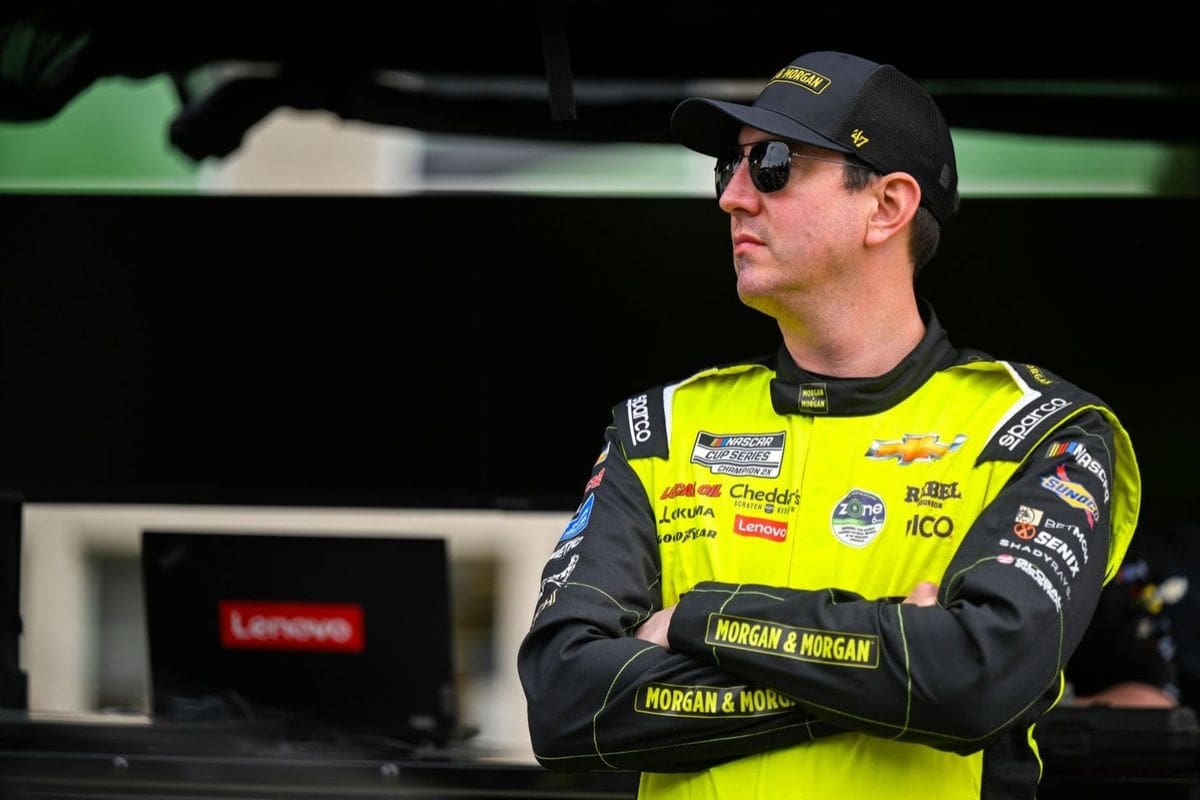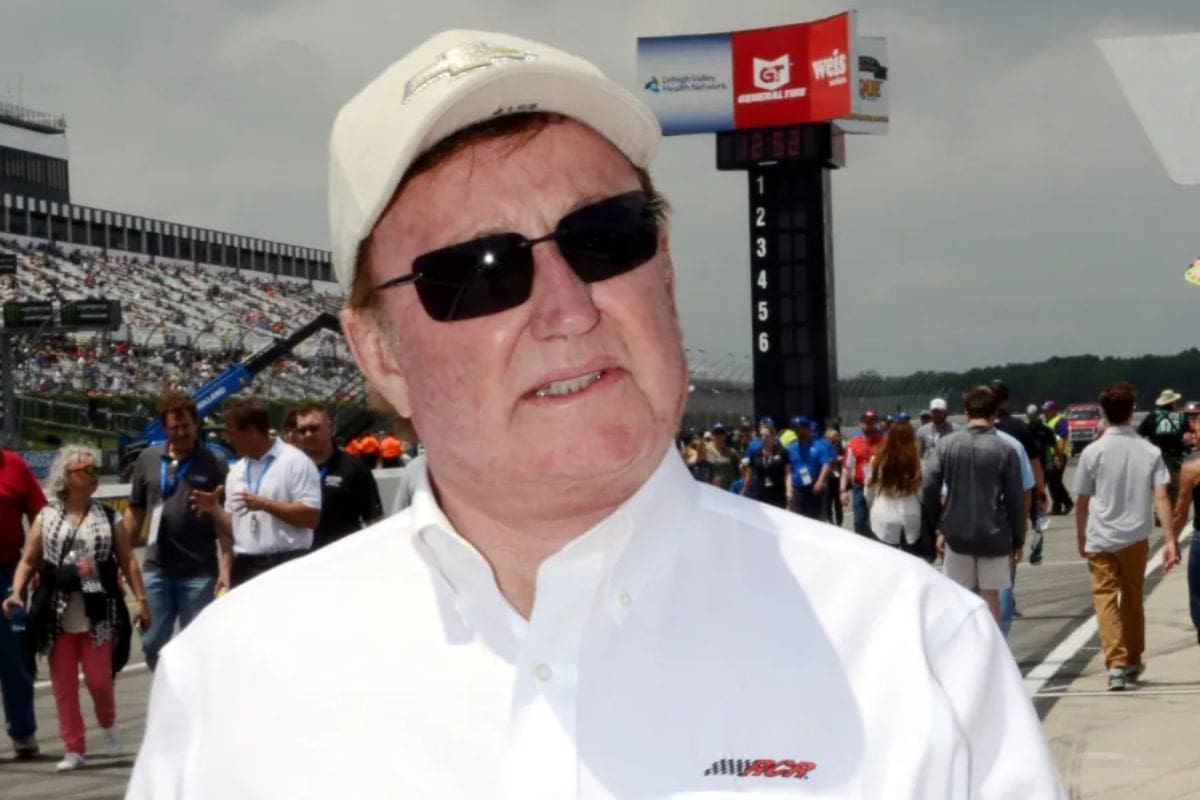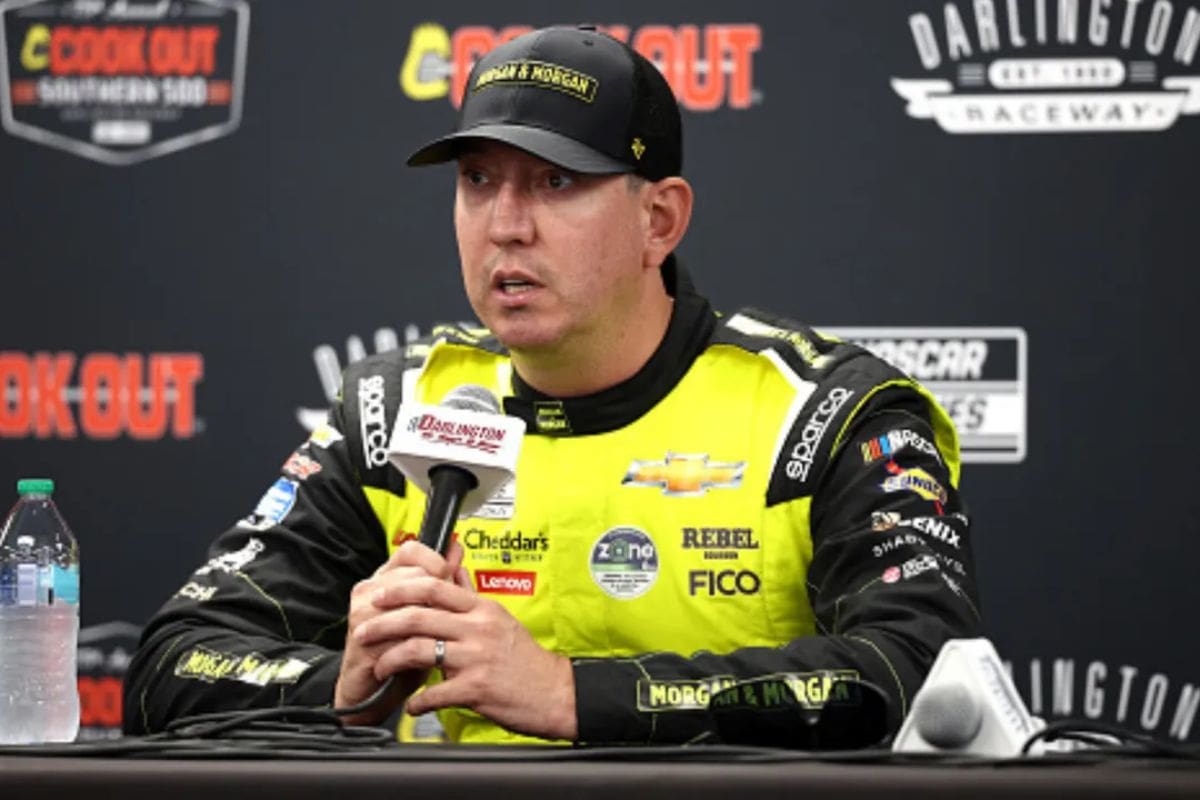Kyle Busch and Richard Childress’ Outburst at Corey LaJoie: The recent incident at Watkins Glen has sparked a notable debate in the NASCAR community, particularly following the pointed criticisms directed at Corey LaJoie by Kyle Busch and Richard Childress. Their allegations of misjudgment highlight the tension inherent in competitive racing and raise questions about accountability and sportsmanship within the sport. As Busch grapples with his own struggles in the wake of this chaos, the implications for playoff standings become increasingly pronounced. What does this mean for the dynamics among drivers as the season progresses, and how might this alter the competitive landscape ahead?
Key Highlights
- Kyle Busch and Richard Childress criticized Corey LaJoie for causing a multi-car incident at Watkins Glen, citing his miscalculation during the race.
- The collision led to Busch’s spin and early eliminations for competitors like Ryan Blaney and Ricky Stenhouse Jr. due to damage.
- Childress expressed frustration, labeling LaJoie the instigator and emphasizing the importance of safety and sportsmanship in NASCAR.
- Busch’s emotional response highlighted the stress drivers face, especially during race starts, amid a challenging 49-race winless streak.
- The incident intensified the rivalry between Busch and LaJoie, contributing to ongoing discussions among fans and analysts about competitive dynamics in NASCAR.
Lap 1 Chaos at Watkins Glen: Busch and LaJoie Collision
The opening lap at Watkins Glen set the stage for a dramatic race, marked by the collision between Kyle Busch and Corey LaJoie at the notorious bus stop turn. The incident unfolded during a moment when drivers were jockeying for position, enthusiastic to assert themselves early in the race. The bus stop, known for its tight corners and heavy braking zones, became the backdrop for a chaotic clash that would reverberate throughout the field.
As Busch and LaJoie made contact, the ensuing chaos resulted in a chain reaction that impacted several competitors. Significantly, Ryan Blaney was eliminated from the battle before the race had truly begun, highlighting the severe consequences of such opening lap incidents.
While Busch spun out, the consequences extended to others, including Ricky Stenhouse Jr., who would ultimately retire after sustaining damage. In contrast, veterans like Denny Hamlin and Brad Keselowski managed to navigate through the turmoil, albeit with their own shares of mechanical harm.
In the immediate aftermath, Busch’s radio chatter painted a picture of confusion and frustration as he sought to understand the dynamics of the collision. The lack of clarity surrounding fault—initially ambiguous yet later attributed to LaJoie—underscores the unpredictable nature of racing at Watkins Glen.
Kyle Busch Learns About the Cause of the Lap 1 Wreck
Frequently caught in the whirlwind of emotions that racing evokes, Kyle Busch faced a moment of reckoning as he sought clarity on the cause of the Lap 1 wreck at Watkins Glen. The chaotic start saw multiple playoff drivers entangled in a mishap that not only derailed their race but also heightened the stakes for those vying for championship rivalry.
Following the incident, Busch’s frustration was palpable as he reached out to his team via radio, demanding answers amidst the confusion. The exchange, captured by the YouTube channel Beating and Banging, revealed a driver grappling with the reality of his situation. Busch’s inquiry, “Biggest idiot. Who is the biggest idiot for me?” emphasized the emotional toll such incidents take on competitors.
In the aftermath of the wreck, several key takeaways emerged regarding the incident:
- Impact on Playoff Standings: The wreck drastically altered the dynamics of the playoff race.
- Driver Behavior: The incident showcased the stress drivers face at the start of races.
- Team Communication: Effective communication is essential in understanding and mitigating race-day chaos.
- Strategic Implications: Early wrecks can force teams to reevaluate their race strategies.
- Fan Reactions: The drama of the wreck engaged viewers, sparking discussions across social media platforms.
Richard Childress Reveals the Culprit
Amid the aftermath of the chaotic Lap 1 wreck, Richard Childress stepped up to clarify the situation, pinpointing Corey LaJoie as the instigator of the incident. His analysis, delivered with the authority of a seasoned team owner, unfolded the narrative of miscalculation that led to the collision.
“Oh, just the same one that took you out at Pocono.” – Childress
“You’ve got to be f–king kidding me!” – Busch
“Seven [Corey LaJoie’s car number], watch on the replay,” he directed, highlighting the crucial role of LaJoie’s actions in the wreck that left Kyle Busch reeling.
Childress pointed out that Busch had adequately left room to the left, suggesting that LaJoie’s misjudgment was the primary cause of the incident.
“It just looked like he used too much curb, got loose, and overcorrected, then just whacked the hell out of you,” Childress detailed, framing LaJoie’s handling error as a significant factor.
This perspective not only clarifies the immediate chaos but also highlights the fine margins that dictate success or failure in NASCAR racing.
The exchange between Childress and Busch was revealing; Busch’s incredulity—“You’ve got to be f–king kidding me!”—reflected deep frustration, amplified by his tumultuous season marked by a playoff absence.
As Childress confirmed the reality of Busch’s “whack,” it became evident that the fallout from the incident would linger beyond the racetrack, accentuating the ongoing stress faced by drivers in a highly competitive environment.
Tension Between Busch and LaJoie Escalates
Recent events have intensified the already simmering rivalry between Kyle Busch and Corey LaJoie, setting the stage for a contentious atmosphere both on and off the track. The friction between these two drivers has roots in multiple collisions, particularly highlighted during the race at Pocono, where Busch faced considerable setbacks.
With Busch finishing in 30th place, while LaJoie secured an impressive eighth, the disparity in their outcomes only exacerbates Busch’s frustrations. This dynamic not only reflects the competitive spirit inherent in NASCAR but also emphasizes the personal stakes involved.
The escalating tension manifests in several notable ways:
- Frequent Collisions: Both drivers have found themselves entangled in on-track incidents, fueling an ongoing feud.
- Divergent Outcomes: LaJoie’s recent successes sharply contrast with Busch’s struggles, adding a psychological edge to their rivalry.
- Public Statements: Busch’s frank remarks regarding LaJoie have drawn attention, suggesting a deeper animosity.
- Team Dynamics: Richard Childress’s comments further accentuate the collective frustration within Busch’s camp, hinting at tactical consequences.
- Fan Reactions: The growing rivalry has captivated fans, igniting debates and discussions across social media platforms.
As the season progresses, this rivalry will likely evolve, impacting not only the drivers involved but also the broader narrative of the NASCAR circuit.
Busch’s Struggles Continue: A 49-Race Dry Spell
Kyle Busch’s ongoing struggle to secure a victory has become a defining narrative of his 2024 season, marked by an unprecedented 49-race dry spell that has left fans and analysts in a like manner questioning the skill of the two-time champion. This extended absence from victory lane is particularly jarring given Busch’s storied career, where he has consistently been a fierce competitor. Missing the playoffs this year only compounds the disappointment, effectively delivering a concluding blow to his championship aspirations.
Despite a promising resurgence post-Olympic break, where Busch notched three consecutive top-five finishes—including two runner-up spots—his momentum has faltered. The recent races at Daytona and Darlington served as poignant reminders of his potential, yet they ended in heartbreak, with Busch unable to capitalize on strong performances. His P30 finish at Watkins Glen highlights the inconsistency plaguing his season.
As the season progresses with only eight races remaining, the stakes are undeniably high for Busch. The opportunity for redemption is palpable, yet the question remains: can he reclaim his former glory before the calendar turns to 2024?
News in Brief: Kyle Busch and Richard Childress’ Outburst at Corey LaJoie
The incident at Watkins Glen highlights the volatile nature of competitive racing, where split-second decisions can have substantial repercussions. The criticisms directed at Corey LaJoie by Kyle Busch and Richard Childress reveal not only a personal rivalry but also a broader concern regarding driver accountability and safety in NASCAR. As tensions mount and playoff implications loom, this altercation may serve as a catalyst for ongoing discussions about sportsmanship and decision-making in racing environments.
ALSO READ: Kyle Busch Gears Up for Speedway Win Following Strong Atlanta Cup Finish



